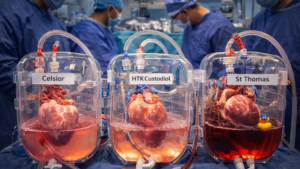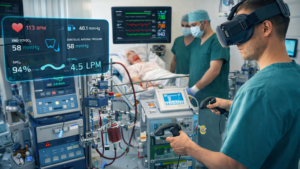In elderly patients undergoing cardiac surgery, extracorporeal circulation affects the incidence of post-operative delirium and cognitive impairment with an impact on quality of life and mortality. In this study, a new oxygenator system (RemoweLL 2) was tested against a conventional system to assess its efficacy in reducing the onset of postoperative delirium and cognitive dysfunction and the levels of serum inflammatory markers. A total of 154 patients (>65 y.o.) undergoing cardiopulmonary bypass (CPB) were enrolled and randomly assigned to oxygenator RemoweLL 2 (n= 81) or to gold standard device Inspire (n = 73) between September 2019 and March 2022. The aims of the study were to assess the incidence of delirium and the cognitive decline by neuropsychiatric tests and the MoCa test intra-hospital and at 6 months after CPB. Inflammation biomarkers in both groups were also evaluated. Before the CPB, the experimental groups were comparable for all variables. After CPB, the incidence of severe post-operative delirium showed a better trend (p = 0.093) in patients assigned to RemoweLL 2 (16.0%) versus Inspire (26.0%). Differences in enolase levels (p = 0.049), white blood cells (p = 0.006), and neutrophils (p = 0.003) in favor of RemoweLL 2 were also found. The use of novel and better construction technologies in CPB oxygenator devices results in measurable better neurocognitive and neurological outcomes in the elderly population undergoing CPB.
Keywords: cardiac surgery; cognitive function; oxygenators.







